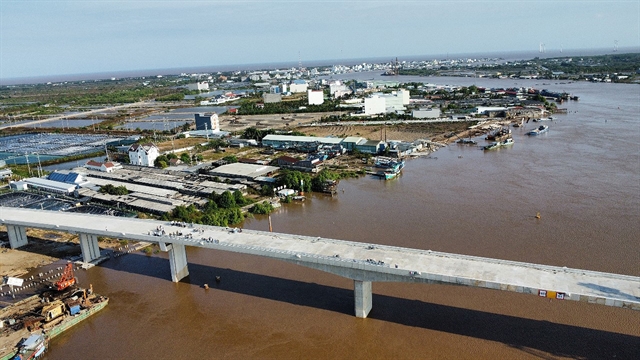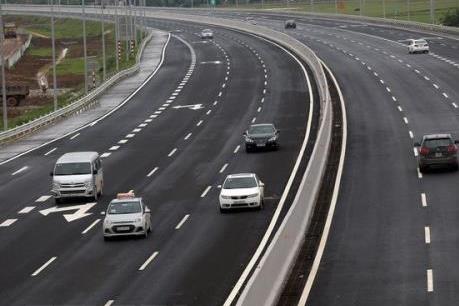 Society
Society


|
| Minister Nguyễn Văn Thể said that he did not rule out the worst scenario in which no investors made it through the preliminary bidding round for sub-projects of the NSE. VNA/VNS Photo |
HÀ NỘI — The Government has prepared a backup plan to fund the North-South Expressway (NSE) amid fears that private investors might not be financially capable of carrying out the mega project, the transport minister has said.
Minister Nguyễn Văn Thể told Đầu tư (Investment) newspaper on Friday that he did not rule out the worst-case scenario in which no investors made it through the preliminary bidding round.
If that was the case, the ministry would immediately report to the Prime Minister and work with the National Assembly’s Standing Committee (NASC) to decide on the next move, Thể said.
“We will either carry on with the bidding to select the investors under the PPP (Public-Private Partnership) which will consequently result in a project delay, or ask the NASC to allow us to use the State budget for investment and earn back the money by selling the tolling rights to corporations,” he said.
“Another solution planned by the Ministry of Transport is to issue Government bonds or project bonds to carry out the projects if we can’t find the investors.”
“This is a fundamental project of the country so we’re paying extra attention to the structure quality. The whole project must be completed in line with required procedures and ensured of the quality”.
‘Extra cautious’
The preliminary bidding rounds for eight sub-projects of the NSE project closed last month with a total 32 investors and investor partnerships applying. The project management boards are scrutinising the capabilities of the potential investors.
“We are rushing through the assessment of the investors’ application to the sub-project of National Highway 45-Nghi Sơn section to report the results to the Ministry of Transport by December 31, 2019,” said Project Management Board (PMU) 2 deputy director Bùi Văn Rạng.
The PMU 2 is in charge of a 43km-long road section with investment estimated at about VNĐ6.3 trillion (US$273.9 million). Three investor partnerships applied, Rạng said.
Though the PMU 2 was supposed to announce bidding results by December 15 according to the law, it asked the transport ministry for a deadline extension by 15 days as it wanted to seek guidance from higher-level authorities over some issues in the bidding.
According to Đầu tư, at least another three PMUs also asked to extend the deadline by 15 days – the maximum amount of time permitted by the Law on Bidding.
“Apart from trying to clarify some issues regarding the financial funding agreement, the bidding team has to be extra cautious and carefully assesses the applications due to the special status of the projects,” an official of a PMU said on condition of anonymity.
According to the ministry, each candidate will be judged on a 100 point scale, of which their financial capability will account for 60 points. Their experience in doing a similar project is worth 30 points and their proposed method to carry out the construction will take up 10 points.
Despite the deadline extension, the ministry will be able to stick to schedule and announce the results of the preliminary bidding in February 2020, said deputy transport minister Nguyễn Nhật.
The second and final round of bidding will open the same month to select and then announce the final winners in late July, he said.
“If everything goes smoothly, all work to pick the investors can be wrapped up by the end of August 2020,” Nhật added.
Credit limit
Eight sub-projects of the NSE are expected to cost VNĐ118.7 trillion ($5.1 billion), of which VNĐ55 trillion will be funded by the State while another VNĐ63.7 trillion will be mobilised from investors.
How Vietnamese investors will be able to guarantee such a large amount of money has been the biggest concern so far, especially when outstanding loans of domestic banks are already very high.
According to a State Bank official speaking anonymously, transport projects under the Build-Operate-Transfer (BOT) and Build-Transfer (BT) models over the last few years usually required a large investment which led to a high demand for bank loans, but the payback period was very long.
That put pressure on banks trying to balance their credit, he said.
“So far the total amount of outstanding loans and credit agreements for BOT and BT projects already touches the banking credit limit for the sector,” he said.
“If banks can’t raise their authorised capital, it will be very difficult to facilitate funding for eight PPP sub-projects of the NSE.” — VNS